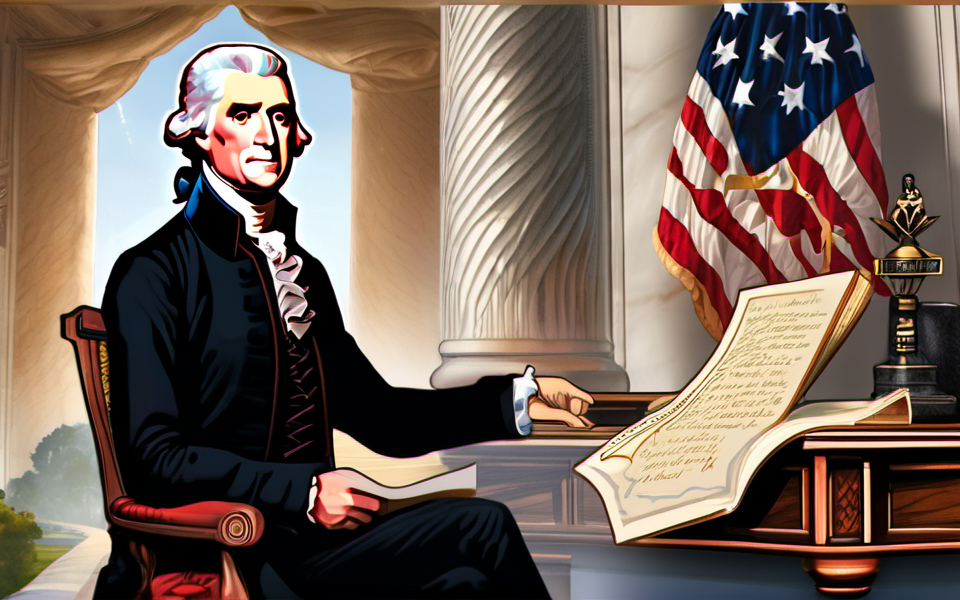Have you ever wondered about the mastermind who shaped the founding principles of America? Dive into the fascinating life of Thomas Jefferson, the genius behind the Declaration of Independence!
Early Life: A Glimpse into Young Jefferson
Thomas Jefferson was born on April 13, 1743, in the quiet countryside of Shadwell, Virginia. Even as a child, Jefferson showed a thirst for knowledge that would later define his exceptional life. His family was well-to-do, owning a significant amount of land, which allowed Jefferson to pursue an education that many others could only dream of.
Jefferson attended the College of William and Mary, where he immersed himself in a wide range of subjects, from philosophy to languages. He was particularly fond of the Enlightenment thinkers, whose ideas about reason and liberty would heavily influence his future political career. Young Jefferson wasn’t just a bookworm; he was also a talented violinist and loved spending time in nature, activities that balanced his intellectual pursuits.
These formative years built the foundation for Jefferson’s revolutionary ideas. Imagine a young man, eyes glittering with curiosity, and a mind hungry for change, who would go on to pen one of the most important documents in American history.
Drafting the Declaration: The Moment of Truth
Fast forward to 1776. The American colonies were buzzing with the desire for independence from British rule. The Continental Congress appointed a Committee of Five to draft a formal statement explaining the colonies’ decision, and Jefferson was chosen to be the principal author.
Jefferson locked himself in a small room for days, passionately putting quill to parchment. He poured his soul into every word, driven by his commitment to the ideals of life, liberty, and the pursuit of happiness. His draft underwent several revisions, but the core principles remained intact, capturing the collective imagination of a nation yearning for freedom.
On July 4, 1776, the Declaration of Independence was officially adopted. Jefferson’s eloquent prose not only declared the colonies free from British rule but also laid the groundwork for the values and principles that would shape America’s future. The document became a beacon of hope and a manifesto for human rights, resonating far beyond American shores.
Jefferson’s Later Years: A Legacy of Innovation
Thomas Jefferson’s contributions didn’t stop with the Declaration. After serving as the third President of the United States, he continued to play a vital role in the young nation’s development. Jefferson founded the University of Virginia, envisioning it as an institution where free inquiry and the dissemination of knowledge would thrive.
He was also an accomplished inventor and architect. Monticello, his stunning Virginia estate, showcases his innovative designs and his love for classical architecture. From creating the swivel chair to devising new agricultural methods, Jefferson’s inventive spirit was as boundless as his intellect.
Even in his twilight years, Jefferson remained deeply engaged in public affairs and intellectual pursuits. He maintained a vast correspondence with other thinkers and leaders of the time, constantly exchanging ideas and pushing the boundaries of thought.
Thomas Jefferson passed away on July 4, 1826, exactly 50 years after the Declaration of Independence was adopted. His legacy, however, lives on, echoing in the principles that continue to guide and inspire the United States.






